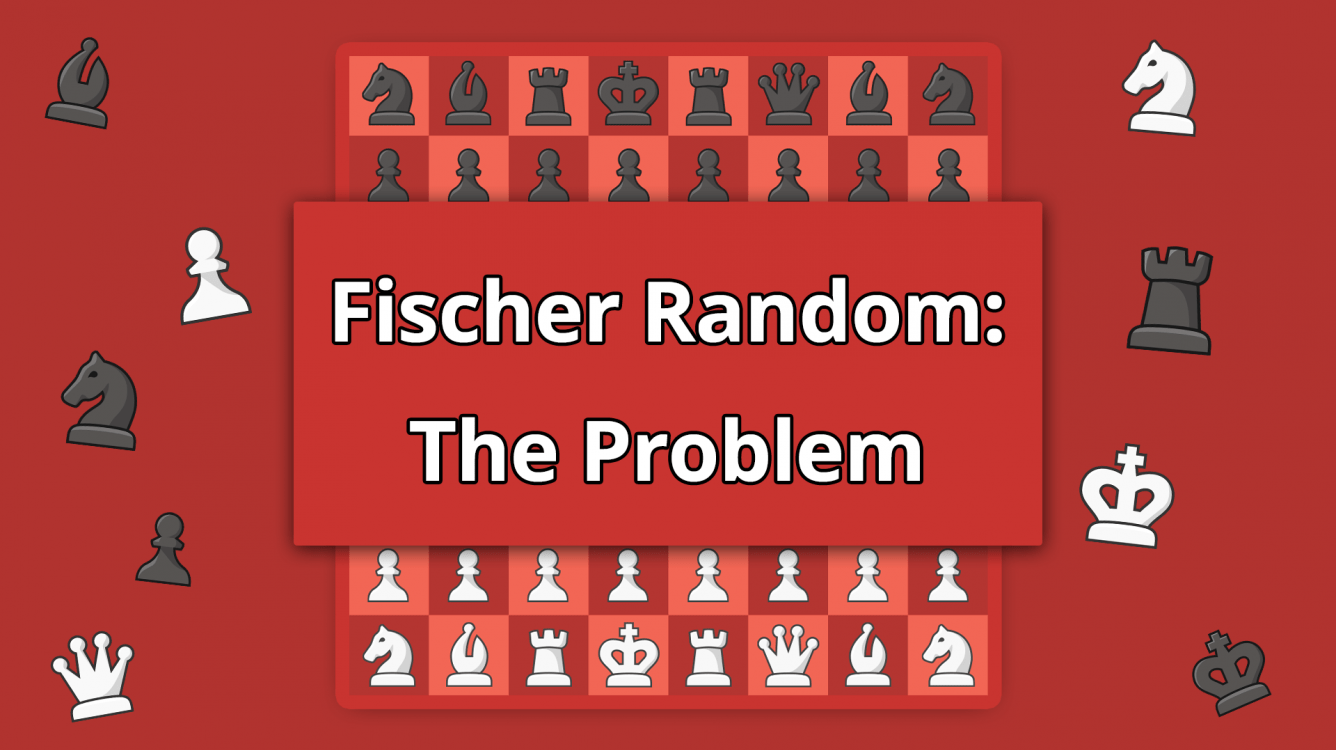
The Only Problem In Fischer Random Chess
Even people who are not interested in baseball remember Yogi Berra as the author of so called "Yogi-isms." Indeed, his catchy phrases which mix humor and wisdom will make you smile and think. Pretty frequently they contradict to themselves. Who can forget his famous, "If the world were perfect, it wouldn't be," or "Nobody goes there anymore. It's too crowded." You cannot help but think of Yogi Berra when you read the following quote by GM Grischuk:
I don't see any drawbacks in Fischer Random chess. The only slight shortcoming is the start position, otherwise there are just advantages.
Considering that the initial position IS the only difference between Fischer Random (also known as Chess960) and classical chess, here we obviously see a chess version of a Yogi-ism.

As I admitted in my article written two years ago, the only reason I watch Fischer Random tournaments is Kasparov's participation there, so I couldn't possibly miss the recent Champions Showdown. However, I made one major change in the way I looked at the games. In the above mentioned article I wrote: "I want to share a trick that I used in order to follow the event. If you just skip the first 15 moves, then the games start resembling the regular chess." This year I watched the games from the very beginning. I know, it needs some explanation. My favorite writer, Sergey Dovlatov wrote in one of his best novels "A Foreign Woman."
"New York was an event for Marusya, a concert, a spectacle. It became a city only after a month or two. Gradually the chaos revealed figures, colours, sounds. The noisy marketing intersection suddenly fell apart into its constituent units: a grocery store, a cafeteria, an insurance agency, and a delicatessen."
Just as for the protagonist, an ugly initial position of Fischer Random suddenly started showing some grocery stores and delicatessen. Let me show you what I am talking about. Here is an old, little-known game by GM Bent Larsen:
The game is nice on its own, but what I like the most is the trap on move four. Can you find the reason why Black shouldn't take the g2-pawn here?
Now, when you know this trick, it will be easier to find the strong tactical idea that Kasparov missed as early as move two! It wasn't winning the game, but nevertheless it was very cute:
Here is what happened in the actual game:
Nevertheless, I was very happy when in the most anticipated game of the tournament the initial position was as close to regular chess as possible. Just the king and queen's bishop swapped places. Not surprisingly, pretty soon the game looked like a regular Queen's Gambit Accepted where Kasparov played a well-known g2-g4 thrust. Carlsen in return offered a trade of bishops.
These strategic elements happened in the following well-known game:
Just like Spassky, after the bishops' trade, Carlsen grabbed the initiative and eventually got a winning position. But then something went wrong.
In order to understand the key ideas of the resulting endgame, let's look at the iconic game Botvinnik vs. Fischer. The final trick of this game where Botvinnik had to deal with Fischer's connected passed a-and b-pawns is well known. Instead of capturing the defenseless g6-pawn, Botvinnik played h4-h5! which was an idea found by GM Geller during the analysis of the adjourned position.
But the most instructive moment of the game happened earlier. Here is Botvinnik's comment after Fischer's move 40... Kg5:
An endgame expert like Capablanca or Smyslov would immediately move his king toward d6 to protect the Nc5. After that, the pawn advance on the queen's side would quickly decide the game.
- Mikhail Botvinnik
Indeed, Black has a passed pawn on the queen's side, so the king should go there to support the promotion of the pawn. Now look at the game Kasparov vs. Carlsen. The World Champion could use Botvinnik's old advice and move his king towards the queen's side pawns by 42...Kd7! Instead he allowed Kasparov to save the game by the same "magic" Botvinnikovian move h4-h5! Also notice the very precise move 45.Re5! when Kasparov cut off the black king and didn't allow him back to the queen's side.
As I wrote in my old article: Garry is the real King Midas of chess since whatever chess subject he touches, he turns into gold. He managed to accomplish the impossible task: I really enjoyed a FRC game! Do I like Chess 960 now? Well, let me put it this way. Last summer an electric car manufacturer Tesla was in a difficult financial situation. The hashtag @TSLAQ was trending on Twitter implying an unavoidable bankruptcy. But one financial analyst made a stand and upgraded his rating on Tesla from "strong sell" to just "sell." Taking his cue, I have upgraded my personal opinion on Fischer Random from "strong dislike" to just "dislike."
It would be interesting to know your opinion on Fischer Random. The main and only idea of this chess variant is to avoid opening theory. While it makes sense in super-tournaments, where top players have analyzed many opening lines to a draw, that is hardly a concern for the more than 90% of other people who enjoy chess. So, please tell us in the comments if you like or dislike Fischer Random.



